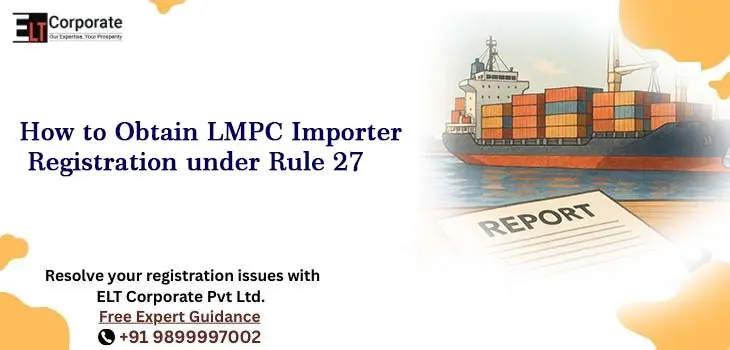Legal Metrology is crucial for startups and D2C brands because it sets the standards for accurate weight, measurement, and pricing of packaged goods. In today’s competitive market, especially for new businesses and direct-to-consumer brands, following these rules is important to protect consumers from misleading information and ensure transparency. Complying with legal metrology regulations helps startups avoid penalties, build customer trust, and maintain a positive reputation. Since startups and D2C brands often operate online and handle packaging themselves, understanding these rules is important for smooth business operations and long-term growth. Overlooking legal metrology can result in legal troubles and loss of customer confidence, which can be damaging for young companies trying to establish themselves.
Why Legal Metrology Is Crucial For Startups?
Legal metrology is crucial for startup companies because it helps them build a reputation, stay in compliance, and avoid legal problems early on. Many startups, mainly those who are selling physical pr packaged products, may not realize that incorrect or missing information like MRP, weight, or manufacturer details on packaging can lead to fines, product seizure, or even marketplace bans. If businesses follow the legal metrology rules, then startups can:
- Avoid legal penalties and issues
- Guarantee their packaging and labels meet regulatory standards
- Build transparency and credibility with consumers
- Stay eligible to sell on platforms like Amazon or Flipkart
- Set a strong foundation for future growth
Why Is Legal Metrology Crucial for D2C Brands?
Legal metrology is required for D2C (Direct to Consumers) brands as they are directly responsible for how their items are packaged, labeled, and presented to customers. Since there’s no middle, any mistakes in MRP, Weight, quantity, manufacturing details, or country of origin fall entirely on the brand. Legal metrology rules help D2C brands:
- Ensure accurate and honest labeling
- Avoid legal penalties and fines
- Build consumer trust and brand credibility
- Reduce the risk of product returns and comply
- Create a professional and compliant image
How Do Legal Metrology Rules Apply To Product Packaging?
Legal Metrology rules apply to product packaging by making it mandatory for brands to display specific important details on every packaged product. These rules are designed to protect consumers from misleading information and make sure fair trade practices.
- Maximum Retail Price (MRP)
- Net quality or weight
- Date of manufacturing or packaging
- Expiry or best-before date
- Name and address of the manufacturer or importer
- Customer care contact details
- Country of origin
What Are The Risk of Ignoring Legal Metrology Compliance?
Ignoring Legal Metrology compliance can lead to serious legal and business consequences, mainly for startups and D2C brands that deal directly with consumers. These laws are in place to secure buyers and confirm fair trade, so non-compliance is treated strictly.
- Fines and Penalties
- Product Seizure
- Marketplace Delisting
- Legal Notices or Litigation
- Loss of Consumer Trust
- Business Disruption
How Can Startups Comply with Legal Metrology Without Legal Teams?
Startups may not have a legal team, but they can still handle Legal Metrology Compliance with some basic knowledge and guidance. It’s all about being proactive and careful with product packaging.
- Understand packaging rules
- Use a compliance checklist
- Consult the expert’s regulatory agency
- Apply for LMPC
- Train your team
- Stay updated
How Can Startups Comply with Legal Metrology Without Legal Teams?
Startups can follow legal metrology rules without a legal team by staying informed and taking expert help when needed. It’s all about getting the packaging details right from the start.
- Learn basic packaging rules
- Use a pre-launch checklist
- Take expert help
- Apply for LMPC
- Train internal
What Are Common Legal Metrology Mistakes Made By Startups?
Startups often overlook Legal Metrology Compliance in the early stages, usually due to a lack of awareness. These small mistakes can lead to big penalties and affect brand trust.
- Missing declaration
- Incorrect font size
- Wrong unit of measurement
- No LMPC certificate
- Not updating the packaging
- Poor label placement
How Does Legal Metrology Help Build Consumer Trust?
Legal Metrology helps build consumer trust by ensuring that every product is honestly and clearly labeled. When customers see accurate details like MRP, weight, and expiry date, they feel confident that they are not being misled:
- Transparency
- Fair Pricing
- Reliability
- Accountibilty
Why Choose ELT Corporate?
ELT Corporate is the most trusted name when it comes to legal metrology and regulatory compliance. We held startups, D2C brands, and importers to stay carefree.
- Expert Guidance
- End-to-End Support
- Fast and hassle-free process
- Trusted by growing brands
- Affordable and reliable
Is Legal Metrology Compliance Mandatory for Small Businesses and Startups?
Yes, small businesses that sell packaged goods must get legal metrology compliance done.
What Happens If A Startup Skips LMPC Certification While Importing Goods?
It is illegal and will lead to shipment delays, penalties, and seizure of goods at customs.







